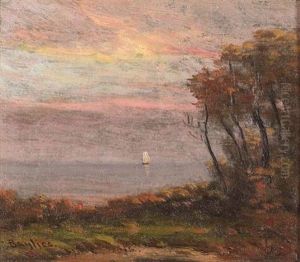William Baylies Paintings
William Baylies was an American physician and politician rather than a recognized artist. Born on September 15, 1776, in Dighton, Massachusetts, Baylies came from a family with a history of public service. His education was robust, attending Dighton Academy and later graduating from Harvard College in 1795. After completing his studies, he pursued a career in medicine.
Although Baylies is not known for artistic endeavors, he made significant contributions to public life and is often remembered for his political career. After practicing medicine for some time, he followed in the footsteps of his uncle Nicholas Baylies, who served as a judge, by entering the political arena. William Baylies became a member of the Federalist Party and was first elected to the Massachusetts House of Representatives in 1808.
Baylies' political career was marked by multiple terms in office. He served in the Massachusetts House in various non-consecutive terms between 1808 and 1812. He also served in the Massachusetts Senate. His federal government service began when he was elected as a Federalist to the United States House of Representatives, where he served from March 4, 1813, until March 3, 1817, and again from March 4, 1821, until March 3, 1823.
After his terms in Congress, Baylies continued to be involved in public service at the local level. He returned to his medical practice and farming but remained an influential figure in his community until his death. William Baylies passed away on September 27, 1865, in West Bridgewater, Massachusetts. His life was characterized by a dedication to service rather than the fine arts, and he is remembered more for his impact on Massachusetts' political landscape than contributions to the cultural or artistic heritage.



